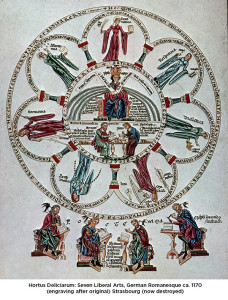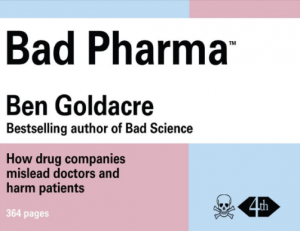What makes for a useful argument? There are several things that need to be in place before a discussion can be mutually fruitful, rather than such discussion descending, as politicians’ arguments so often do, into a simple exchange of soundbites and slogans. The classical form for understanding a particular subject divides the material into three categories – grammar, logic and rhetoric.
Grammar is where to begin, the ground stuff: the basic vocabulary, that which is needed in order simply to know what you are talking about. This is the stuff that needs to be learnt by heart before being able to progress any further, so it includes things like the alphabet, number sequence, basic dates of history and so on. Without this foundation it is literally impossible to progress any further in an understanding of the subject area.
After grammar comes logic. This is where the basic raw material has been learned, and now it is possible to apply reason to that raw material. This is where the rules of interpretation are established and put to use, where words can be formed into proper sentences, where numbers can be put through equations, where a story can be told around a particular historical sequence of events and so on.
Rhetoric comes last. Rhetoric is where things can become creative, for this is where those who have mastered the grammar and logic of a subject are able to begin building new arguments and ideas; that is, this is where it is possible to develop new rules for the logic. This is where creative and interesting work can be done – and sometimes this creative and interesting work is so profound that it completely recasts the grammar and logic of the subject in question.
The great problem with arguments about theology and philosophy of religion in our society is that those who make the most noise are people who think that they are operating at the level of rhetoric when in fact they have not yet even engaged with the basic grammar. Richard Dawkins, for example, hasn’t even achieved the level of being wrong. He is like a baby first learning to speak words, whereby it is mostly gibberish that comes out, and when there is a coherent word you cannot be certain that it matches up with a coherent thought.
Theology and the philosophy of religion have been studied by the finest minds in human history for three thousand years and more. There is a rich and fertile intellectual field that interacts with every other intellectual field, most especially the philosophy of science and the philosophy of language – it is not possible to have a rigorous understanding of physics without an equally robust understanding of metaphysics for example (as Aristotle knew). In order to make a coherent contribution to understanding in this area it really does make a difference if you have become acquainted with the way the topics have been debated through history, not least because by doing so you discover many of the most common mistakes that have been made in the past, and you are therefore set free to not repeat them.
This intellectual history has many twists and turns, new pathways and dead ends. One particular dead-end is associated with the rise of twentieth-century atheism. The roots of that form of atheism are clear. It flows from arguments put forward by David Hume in the eighteenth century, moves through the development of analytic philosophy with people like Bertrand Russell, took a canonical form as ‘logical positivism’ with the publication of AJ Ayer’s ‘Language, Truth and Logic’ in 1936, and was taken as received opinion in undergraduate circles in the 1960s. The arguments that Dawkins and his ilk like to make are cut directly from the arguments made by people like Russell and Ayer nearly eighty years ago. He isn’t saying anything new. Of course, the tradition doesn’t stand still, and what was intellectually fashionable in the 1960s had begun to be dismantled by the 1990’s and is now regarded as rather quaint. Ayer himself has disowned the book that was so influential, stating that it was full of mistakes that he spent the next fifty years trying to correct.
So when someone who has been formed in an intellectual tradition like philosophy engages in debate with works like those by Dawkins, Hithens and their brethren, it can be immensely frustrating. There is no basic agreement on the terms of the argument, no consensus as to the grammar and logic, let alone the rhetoric. Dawkins himself is very clear about his distaste for theology as he consigns it all to an intellectual scrapheap (using what is basically a ‘logical positivism’ type of argument to do so). At that point, what can the educated person do? She can simply say ‘you don’t know what you are talking about’ and leave it at that.
Unless…. unless she sees that there is a genuinely enquiring mind behind the arguments and disputes. Where there is a good will and an open mind then it is possible for a shared understanding to be formed. Please note that this shared understanding does not at all mean that the beginning student using Dawkins’ arguments will end up being converted to Christianity. Not at all. It is perfectly possible to understand the tradition completely, to know the grammar, be an expert in the logic, and to be creative rhetorically within the mainstream Western philosophical tradition, and still be a completely convinced atheist. It’s just that such an atheist would not be intellectually lazy, parroting opinions at fifth or sixth hand, and most of all, such an atheist would have a proper understanding of what it was that he was rejecting. That is what is most missing from Dawkins.
My philosophical hero, Wittgenstein, was a part of the intellectual movement that I summarised above – he was Russell’s favourite pupil – yet, even though his own faith was murky at best, he had a very clear understanding of the nature of religious belief and the way in which the philosophical tradition both could and could not interact with it. When he was invited to address the Vienna Circle of philosophers (those whose work Ayer went on to summarise) he realised that they hadn’t grasped some of the basic grammar of what he was trying to do. He therefore turned his chair around and began to recite poetry, in an attempt to shock them into opening their minds. He didn’t succeed. As he later wrote, “What makes a subject difficult to understand — if it is significant, important — is not that some special instruction about abstruse things is necessary to understand it. Rather it is the contrast between the understanding of the subject and what most people want to see. Because of this the very things that are most obvious can become the most difficult to understand. What has to be overcome is not difficulty of the intellect but of the will.” That’s the problem that I see with people like Dawkins – they simply don’t want to understand.




You must be logged in to post a comment.